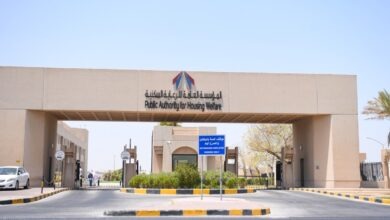4,000 Kuwaitis die from heart disease every year
Fifty percent of Kuwaitis have elevated blood fat levels, and the country ranks first in the Arab world for obesity and overweight rates, with statistics showing that 75% of the population is impacted.

• Dr. Ahmed Al-Sarraf, Head of the Lipid Diseases Unit at Sabah Al-Ahmad Cardiac Center warned of the high blood sugar levels among citizens, which reach about 25 percent, in addition to other factors such as obesity, hypertension, and high cholesterol.
The Sabah Al-Ahmad Cardiac Center, in cooperation with the Kuwait Heart Association, organized a medical conference and awareness campaign under the slogan “A Healthy Heart for a Bright Future” to raise awareness of heart diseases and their risk factors.
At the conference, health statistics revealed that approximately 4,000 Kuwaitis die each year from heart disease and arteriosclerosis, a staggering figure relative to the population size.
Dr. Ahmed Al-Sarraf, Head of the Lipid Diseases Unit at Sabah Al-Ahmad Cardiac Center and a member of the Heart Association, emphasized during the conference that 50% of Kuwaitis have high blood fat levels. He noted that Kuwait leads the Arab world in obesity and overweight rates, with statistics indicating that 75% of the population is affected.
Al-Sarraf warned of the high blood sugar levels among citizens, which reach about 25 percent, in addition to other factors such as obesity, hypertension, and high cholesterol. He said the aim of the conference is to inform the public about risk factors associated with heart disease and arteriosclerosis.
He stated, “Heart disease and arteriosclerosis are major causes of death, not only in Kuwait but globally. Our periodic medical conferences are designed to educate people about these risks and how to avoid them.”
The event featured lectures from experts in Kuwait, the Gulf states, and the UK, along with a week-long public awareness campaign at Avenues Mall to discuss the leading causes of heart disease.
In a separate context, the Rapid Emergency Response Team of the Radiation Protection Department at the Ministry of Health, in collaboration with the General Directorate of Civil Defense and the GCC Emergency Management Center, participated in a mock exercise organized by the International Atomic Energy Agency.
The ministry explained that these periodic exercises assess the readiness of technical teams and enhance cooperation among countries to quickly respond to emergencies, ultimately reducing risks and ensuring effective protection.
The Ministry of Health stated that this exercise was conducted at the invitation of the agency’s emergency center, with the participation of leaders from the Ministry of Health and Civil Defense, along with several specialists and experts.
The ministry explained that the exercise aims to test emergency response arrangements related to cross-border nuclear incidents or radiological accidents, assessing the capabilities of competent authorities and national personnel in handling such events on an international scale, as this type of exercise is conducted periodically.
The ministry emphasized the importance of these preparations to ensure the readiness of technical teams to confront any emergency and to enhance countries’ ability to cooperate swiftly and coordinate efforts in the event of an accident, thereby contributing to risk reduction. Furthermore, these exercises help evaluate the effectiveness of national and international response systems and foster cooperation among relevant parties to ensure optimal protection.












